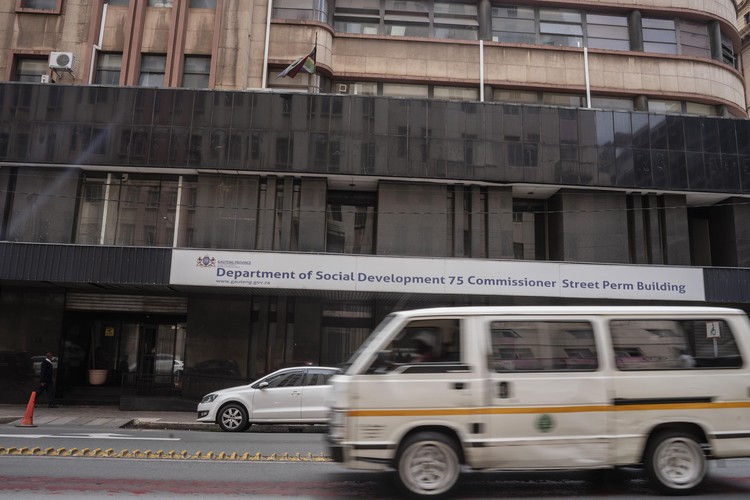
18 March 2024
The Gauteng Department of Social Development has lost a bid to interdict 455 organisations from protesting against looming budget cuts. Archive photo: Ihsaan Haffejee
An attempt by the Gauteng Department of Social Development to gag civil society at a time when subsidies to NGOs are expected to be cut, has failed.
Johannesburg High Court Judge Stuart Wilson on Friday dismissed an urgent application for an interdict against all 455 NGOs registered with the department and “any other non-profit organisation” from protesting, threatening staff or illegally disrupting its business activities.
Judge Wilson said he would still provide a written judgment but commented that the arguments of the department were “vague”, “wide” and “irresponsible.”
The basis for the application was a poster, written by an unknown person on behalf of an unknown organisation or organisations, advertising a three day “sit in” at the department’s Marshalltown offices. The protesters were urged to wear black and cover their faces with masks.
The application was opposed by the Gauteng Care Crisis Committee and the Nisaa Institute for Women’s Development, which labelled it as an attempt to silence the NGO sector.
“The poster lists no organisation as an organiser, yet the applicant (the department) deems it appropriate to malign all non-profit organisations by attributing it to them.
“One can only surmise that the applicant is close to making its decisions for the 2024/2025 subsidy funding period and these decisions are likely to have deeply adverse consequences for the sector and the applicant seeks to pre-emptively bar any protest action against it. The relief sought is chilling,” the Institute’s Dr Zubeda Dangor said in her affidavit.
Social Development head Matilda Gasela said, in her affidavit, that in October 2023, the department had decided to create independent panels to consider applications for funding from non-profit organisations.
She said when the poster was brought to the attention of the department “it was reasonable to conclude that it was created or issued by one of the affected non-profit organisations, aggrieved by the decision”.
She told of previous protests, including one where non-profit organisations had entered department offices. Tyres were burned and employees had to be evacuated because of the smoke.
She said an interdict was necessary to protect employees and also members of the public who relied on the proper functioning of the department.
But Dangor said while there were understandable concerns about the lack of clarity on how the panels would work, and the delays in funding, the Gauteng Care Crisis Committee (which has 61 member organisations in the province) had not put out the poster and it was not planning any sit-in.
“On 13 March we received a bulk email from the office of the State attorney, serving the urgent application. The relief sought came as a complete shock, considering that no protest action, let alone a sit-in, had been planned.
“We were deeply dismayed by the depiction of them in the court papers, as violent, dishonest, non law abiding and a threat to others.”
Dangor said the order sought was unenforceable because the department had not named the author of the poster but had “ indiscriminately cast a net too wide”.
The interdict would prevent the organisations from exercising their constitutional rights to freely assemble and demand fair and just administrative action at a time when funding for NGOs is being decreased.
“This is an opportunity to silence the NGO sector,” Dangor said.
In a statement, the Institute and the Committee welcomed the dismissal of the application.
“The department made no real attempt to investigate the source of the poster nor establish how the 455 NGOs, other NGOs not registered, or any other private individuals, were linked to the poster.
“They certainly did not consult with NGOs to enquire about the poster, its origins and the proposed sit-in. Instead, they rushed to court to impugn the integrity of the sector as a whole.
“Brought in the context of a looming cut of R223-million to the budget for non-profit organisation services revealed by the 2024/25 Estimates of Provincial Revenue and Expenditure issued by the Gauteng Provincial Treasury, the department’s application was little more than a thinly-veiled attempt to silence NGO concerns around the cuts.”